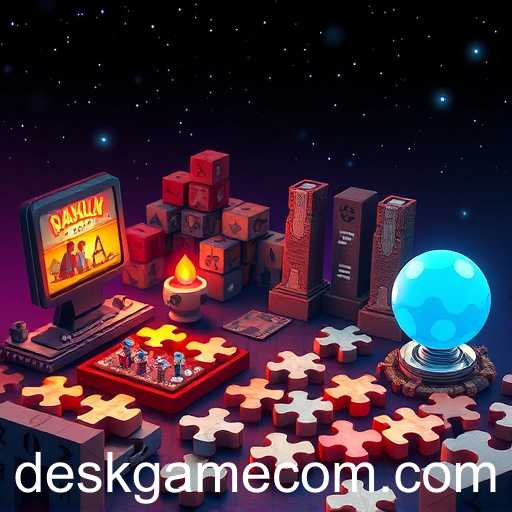An in-depth look at the captivating 'Puzzles' category within the desk games universe, exploring its diverse offerings, popularity, and impact on players of all ages.
In the ever-expanding universe of desk games, the 'Puzzles' category stands out as a beacon of creativity and mental stimulation. It’s a realm where logic intertwines with imagination, bringing joy and a sense of achievement to players across various demographics. Recognized by the keyword 'deskgame,' puzzles offer a structural yet freeing environment that encourages players to think critically while enjoying a satisfying gaming experience.
Puzzles come in various formats, each with unique challenges and rewards. Whether it's the classic jigsaw puzzle, which requires patience and an eye for detail, or a more modern and digital version, these games push users to exercise their cognitive abilities. They serve as effective tools for improving problem-solving skills, enhancing memory, and boosting spatial awareness. With a range stretching from simple designs suitable for children to advanced structures for puzzle enthusiasts, these games cater to a wide audience.
One of the reasons puzzles maintain their popularity on gaming websites is their versatility. Unlike many other games, which might require a high level of skill or strategic acumen, puzzles are accessible to almost anyone willing to engage with them. This broad appeal ensures that they remain a staple category in the desk games community. Moreover, puzzles transcend language barriers, making them a universal form of entertainment—players from any part of the world can enjoy a puzzle without needing to understand specific linguistic cues or cultural references.
The growth of online platforms offering desk games has further bolstered the appeal of puzzles. These platforms often incorporate community features that allow enthusiasts to share their favorite puzzles, collaborate on solutions, and even create new challenges for others to solve. This communal aspect adds another layer of enjoyment to the puzzle-solving process, transforming it from a solitary pastime into a social experience.
Economic factors also play a role in the sustained interest in puzzles. The digital versions are often less expensive than other types of games, providing an affordable entertainment option for families and individuals alike. The cost-effectiveness, coupled with the cognitive benefits, makes puzzles a particularly attractive proposition for educators and parents who seek immersive yet educational content for children.
In conclusion, puzzles as a category within the desk games genre represent not only entertainment but also a tool for education and mental development. The nature of puzzles encourages creativity, fosters social interactions in an online environment, and remains financially accessible, ensuring their continued success and relevance in the evolving landscape of desk games.




